AFTER THE WAR
( Nagasaki Atomic Bomb Mueseum, 1945 )
On August 6, 1945, the United States implemented the first tactical use of the atomic bomb. The news of Hiroshima's destruction swept across the world. The attack created moral conflict within many members of the MIS. Many reflected on their choice to use their language and culture to aid America in the war. They loved their country and wanted to prove their loyalty, but the bomb detonated by the United States had killed many innocent people, including their family and friends.
Order to drop atomic bomb.
( National Archives, 1945 )
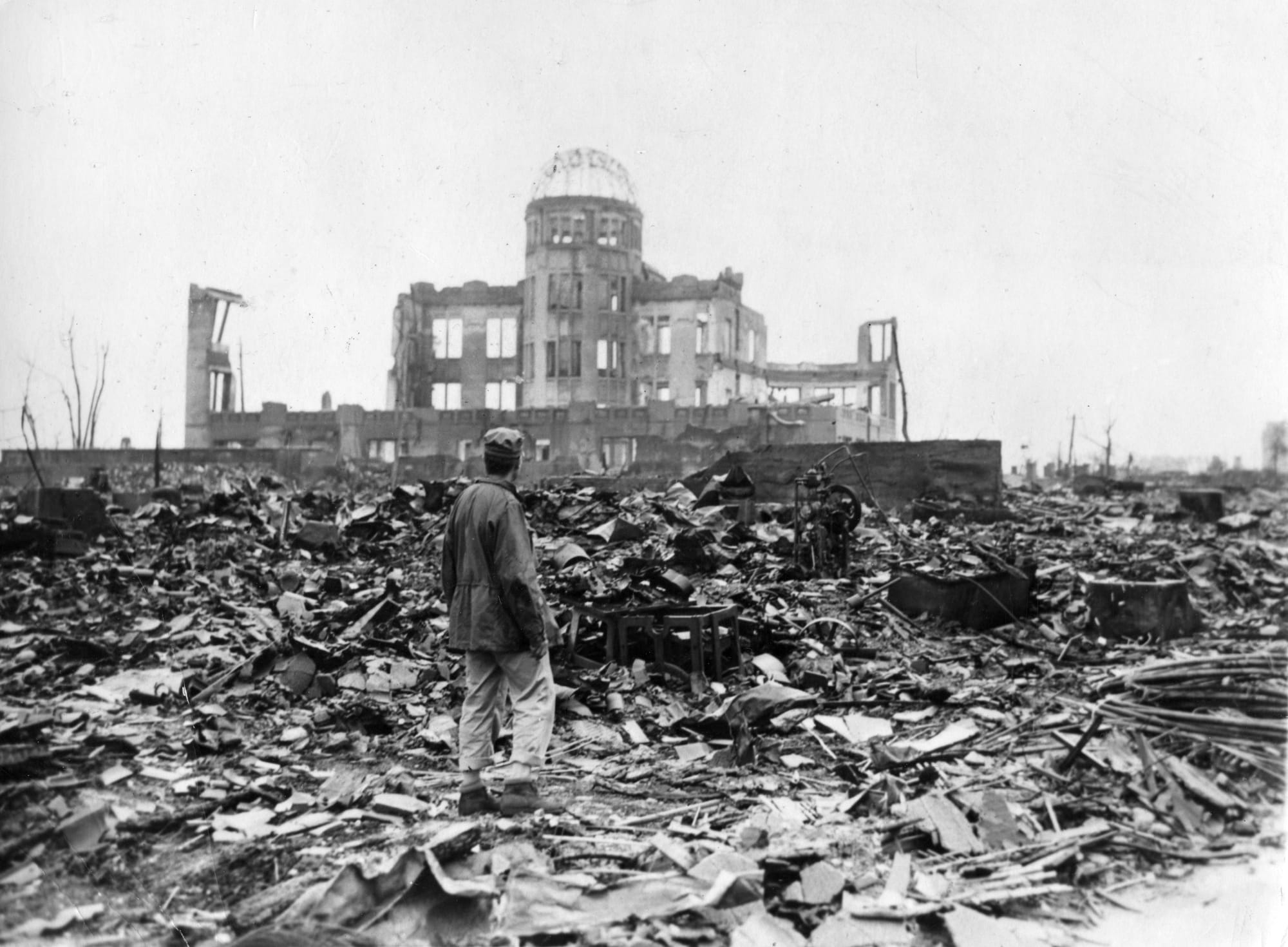
Damage from Hiroshima atomic bomb.
( Universal History Archive / Getty Images, 1945 )
More than 5,000 MIS linguists, including women, were deployed to assist in the rebuilding of a Japan ravaged by war. Going to Japan allowed them to overcome this moral conflict and break through the cultural and language barriers between Japan and America to restore peace.
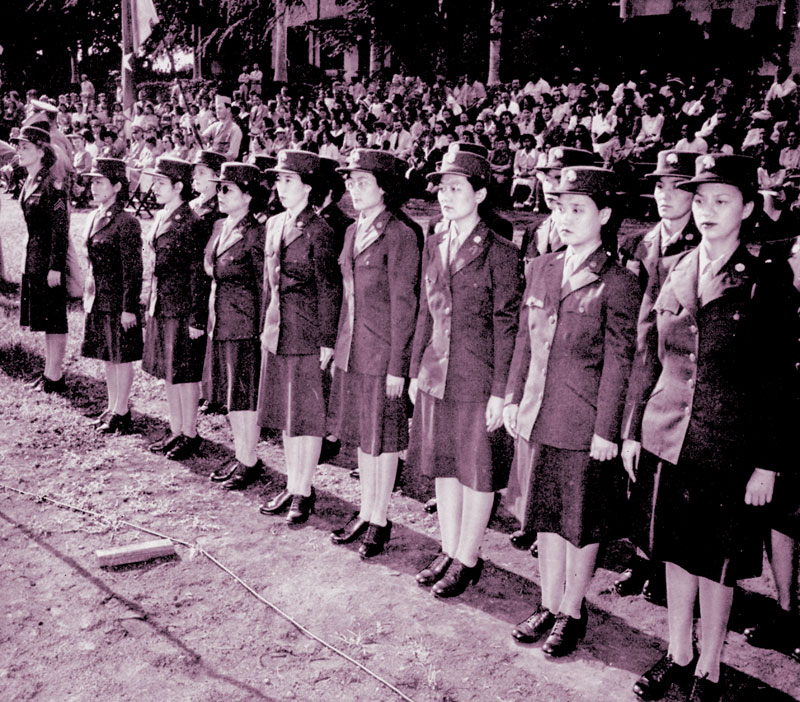
59 female MIS linguists deployed.
( U.S. Army Signal Corps, 1944 )
Map of occupied of Japan. ( Nisei Linguists: Japanese Americans in the Military Intelligence Service During World War II, c.1945-1946 )
"The Nisei of this school will be absolutely essential to the successful occupation of Japan and to the winning of the peace. Just as the former graduates served as the vital connecting link between Allied soldiers and the Japanese in combat, the Nisei will serve as the language bridge between the Allied occupation forces and the 80,000,000 people of Japan."
- Maj Gen Bissell at Fort Snelling
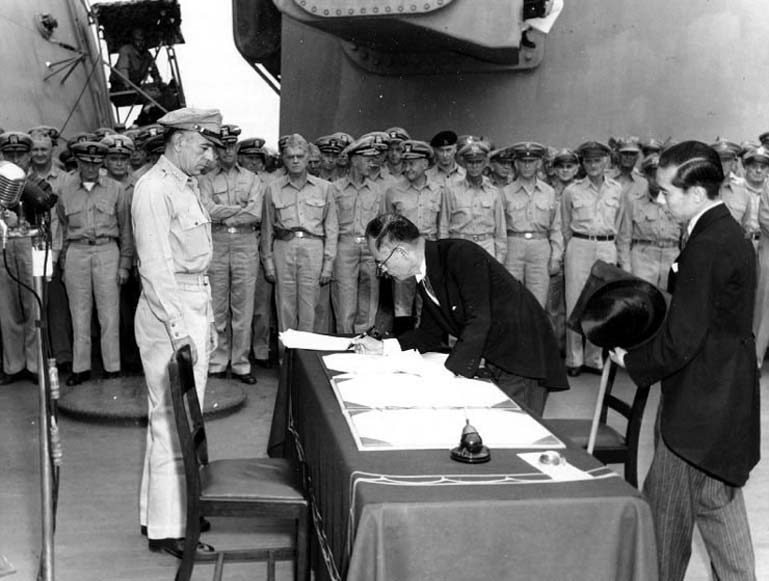
Japan signing document to surrender.
( U.S. Army Signal Corps, 1945 )
Nisei linguists helped with the translation during the surrender and to demobilize Japan's military personnel after the surrender of Japan.
MIS linguists demobilizing Japanese Army.
( Nick Miletic / Go For Broke National Education Center, 1945 )
Destruction observed while conducting survey.
( Americanism: A Matter of Mind and Heart Volume I, The Military Intelligence Service, 1996 )
During the duration of war trials from December 1945 to 1948, many Nisei participated in the prosecution of Japanese military leaders held at Sugamo Prison.
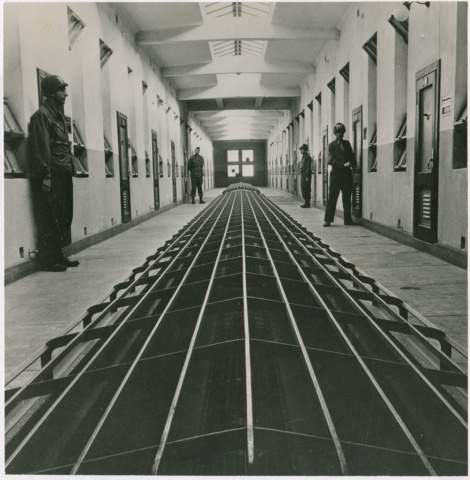
Sugamo Prison conditions and security.
( Theodore Akimoto Family Collection, c.1945-1947 )
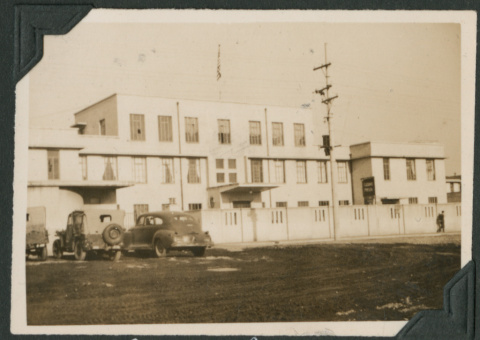
Where Japanese leaders were held captive.
( Matsui Family Collection / Densho, 1946 )
MIS members were heavily involved in the creation of the new Japanese constitution. They aided in the translation and the transition of Japan's absolute monarchy to a constitutional monarchy. Through the Civil Censorship Detachment (CCD), they acquired civil intelligence from mass media sources in Japan to supervise and guarantee an organized implementation of policies.
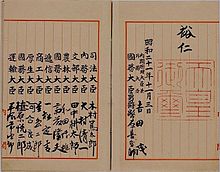
Japan's new Constitution after WWII.
( National Archives of Japan, 1947 )
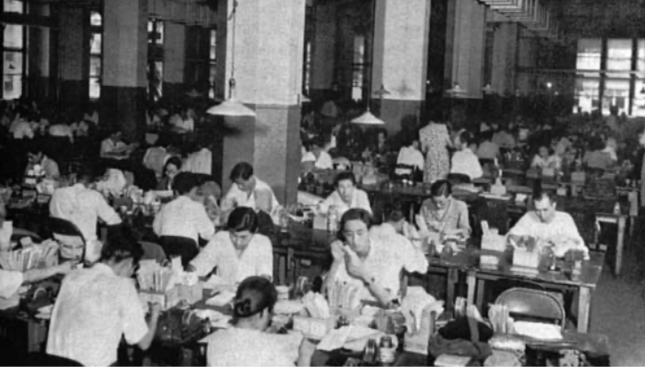
CCD workers in building.
( Nisei Linguists: Japanese Americans in the Military Intelligence Service During World War II, c.1945-1946 )
Through the Counter Intelligence Corps (CIC), hundreds of MIS investigators worked to detect and prevent rebellious activities.
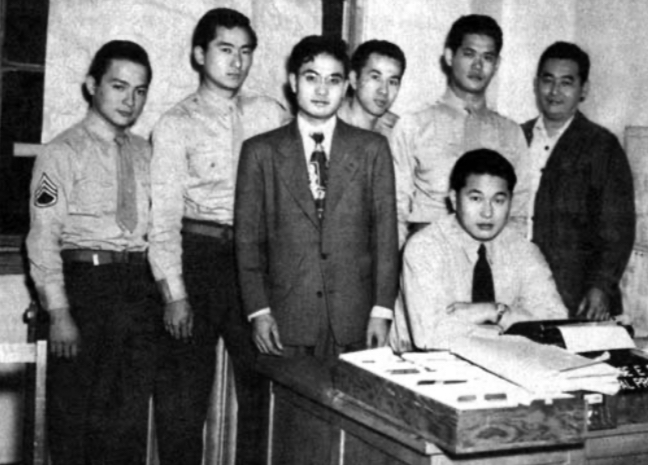
Nisei working with CIC.
( Nisei Linguists: Japanese Americans in the Military Intelligence Service During World War II / Yokohama, 1946 )
Tom Yamada guarding General Tojo.
( Americanism: A Matter of Mind and Heart Volume I, The Military Intelligence Service, 1996 )
"[The MIS] ...saved over 1,000,000 American lives and shortened the war by two years...they collected information on the battlefield, they shared death in battle...in all they handled between two and three million (Japanese) documents. The information received through their special skills proved invaluable to our battle forces."
-Maj Gen C.A. Willoughby, Ass’t Chief of Staff, G-2, GHQ , Far East Command
Without the MIS, the relations between America and Japan may have been irreparable. Today, Japan is a great economic power and one of America's greatest allies. As members of both cultures, the MIS was able to create an understanding between the two countries and restore the peace as well as their morality.
Newspaper about the Occupation of Japan.
( Pacific Citizen, 1945 )
MIS members connecting with Japan.
( Densho, 2000 )